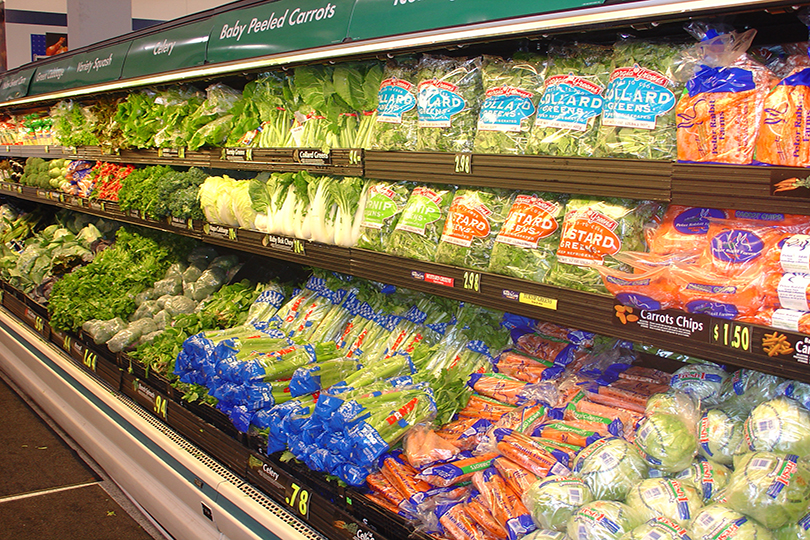By Jennifer Whitlock
Field Editor
Importing and exporting agricultural products is key to maintaining the American food supply, as well as the state and national economy, according to Texas A&M University and Texas A&M AgriLife Extension specialists.
Although many people associate importation with negative effects on the economy, it’s beneficial to the economy and helps consumers by providing food and other agricultural goods not in season or that may not be produced domestically, said AgriLife Economist Dr. Luis Ribera.
“The U.S. imports a huge volume of agricultural products, such as fruits and vegetables, from other countries, especially Mexico, to meet domestic consumer needs,” Ribera said. “It means consumers can get the products they want when they want them, and the two-way trade serves to bolster both the Texas and U.S. economy.”
Common imported food items that would be difficult to grow in Texas or other U.S. states include coffee, limes, bananas and avocados. More than 99% of those items consumed in the U.S. are imported from another country, along with about 90% of tomatoes and 52% of orange juice, according to Ribera.
A study conducted by Texas A&M’s Agribusiness, Food and Consumer Economics Research Center (AFCERC) shows how importing avocados benefits the Texas and U.S. economy.
Over the past two decades, the demand for avocados has surged as per-capita consumption grew 240%. Domestic production in California, Florida and Hawaii can only meet about 10% of consumer demand, leaving a huge need for imports.
The majority of avocados are imported from Mexico, followed by the Dominican Republic, Peru, Indonesia, Columbia and Brazil, according to Dr. Gary Williams, co-director of AFCERC.
A 2019 AFCERC analysis prepared by Williams for the Mexican Hass Avocado Import Association (MHAIA) showed the import of $2.82 billion in Hass avocados provided $6.5 billion in U.S. economic output, $4 billion in added value to the U.S. gross domestic product (GDP), $2.2 billion in U.S. labor income, $1.1 billion in taxes and 33.051 American jobs.
“Most of this economic benefit was accrued by wholesale, retail and service industries at the state and national level,” Williams said.
MHAIA is also headquartered in Fort Worth, which he noted provides additional benefits to the Texas economy.
“A large percentage of the rapidly growing volume of avocado imports into the U.S. comes through Texas ports and has a positive impact on the Texas economy,” Williams told AgriLife Today.
Although there are positive highlights in the extensive fresh produce trade between the U.S. and Mexico, we’re still seeking the right balance, said Texas A&M Agriculture and Food Policy Center Co-Director Dr. Bart Fischer.
In 2020, the U.S. imported nearly $25 billion in horticultural products from Mexico, but the combined total of all agricultural exports to Mexico totaled just over $18 billion, Fischer noted.
“There is still sensitivity on the part of many U.S. producers about our striking the right balance in agricultural trade. Many growers argue that the growth in fruit and vegetable imports from Mexico is the result of unfair competition, including lower labor and environmental standards, as well as significant investment from the Mexican government,” he said. “This is further complicated by the fact that many U.S. companies have a significant presence in Mexico, so some of that ‘trade imbalance’ is actually from companies with U.S. ties providing Mexican-grown produce for importation to the U.S.”
The U.S. still exports plenty of goods as the largest agricultural exporter in the world. In 2020, Ribera noted the U.S. exported $150 billion of agricultural products, about one-third of agricultural income. U.S. agricultural imports totaled $146.8 billion last year, creating a $3.2 billion agricultural trade surplus for the nation.
And for 19 years running, Texas has been the top exporter among U.S. states, according to the U.S. Department of Commerce. Texas exported $279.3 billion of products and services in 2020, with the value of those goods making up 19.5% of overall U.S. exports.
More than $6.5 billion of Texas exports last year were agricultural goods, which Ribera said supports trade-related jobs at large and small companies, farms, factories and more.

